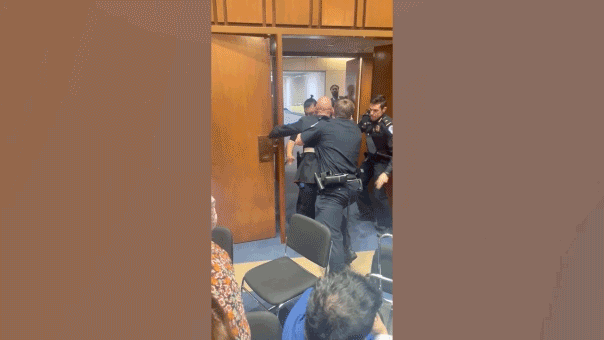Faction of GOP senators plan to challenge Electoral College results
Rep. Jim Jordan, R-Ohio, joins 'Fox News @ Night' to discuss the planned maneuver by lawmakers
Wednesday’s joint session of Congress, to formally certify last month’s Electoral College vote in the 2020 presidential election, is normally a ceremonial event.
But this year the quadrennial gathering that’s mandated by the U.S. Constitution is anything but a mere formality – and is expected to be much longer and infinitely more contentious than usual.
President Trump has repeatedly charged for the past two months that November’s election was "rigged" in roughly half a dozen battleground states where he was narrowly edged by President-elect Joe Biden. The former vice president topped Trump by more than 7 million votes nationwide and defeated the president by a 306-232 in last month’s Electoral College vote. Trump’s unsubstantiated claims that there was "massive voter fraud" in the general election has spurred some of his strongest supporters in Congress – more than 100 House Republicans and at least 13 GOP senators – to say they’ll raise objections to the election results.
That will result in both houses of Congress debating and voting on the electoral objections for the first time in 16 years and for only the third time since the passing of the Electoral Count Act of 1887, which along with the 12th Amendment to the Constitution governs Wednesday’s Electoral College certification by Congress, which is the final procedural step in the presidential election.
While the move by Trump supporters in Congress to raise objections to the presidential election results in states like Arizona, Georgia, Michigan, Pennsylvania, Nevada and Wisconsin, will slow the proceeding, it’s expected to fall far short. The combined votes of the Democrats in Congress, as well as many Republicans who don’t support Trump’s attempts to overturn the election results, should be more than enough to dismiss the push by the president’s supporters.
TRUMP PUTS PRESSURE ON PENCE AHEAD OF ELECTION SHOWDOWN IN CONGRESS
Here's how all the action should play out on Wednesday.
Under federal law, Congress is mandated to meet on Jan. 6 in a joint session to certify the Electoral College vote. The session, which will begin at 1pm ET, will be presided over by Vice President Mike Pence, in his role as president of the Senate. He will eventually declare an election winner when the session concludes.
The sealed certificates from all 50 states and the District of Columbia – which contain a record of their Electoral College vote – will be brought into the House chamber in mahogany boxes. Bipartisan representatives from both chambers will open the certificates, read the results out loud, and give an official count.
After the certificate from a state is read out loud in the chamber, any member of Congress can stand up and object to that state’s Electoral College vote on any grounds. But the presiding officer – which will be Pence - cannot hear the objection unless it is in writing and signed by at least one House member and one Senate member.
BATTLE LINES DRAWN IN GOP OVER TRUMP'S PUSH TO OVERTURN PRESIDENTIAL ELECTION RESULTS
If there is a joint request – which appears all but certain on Wednesday – the joint session is suspended and both houses of Congress go into separate sessions to debate and vote on those objections. For an objection to succeed, it must be upheld by a majority vote in each chamber, which is extremely unlikely. If one or both houses of Congress vote down the objections, the original electoral vote count is sustained.
The last time this happened - albeit on a much smaller scale - was in January 2005, following President George W. Bush's edging of then-Democratic Sen. John Kerry of Massachusetts in the Electoral College vote. The election came down to Ohio, which Bush narrowly won.
Two Democrats – Rep. Stephanie Tubbs Jones of Ohio and Sen. Barbara Boxer of California - objected to Ohio’s electoral votes, claiming there were irregularities that led to voters being disenfranchised. Both chambers debated the objection and then rejected it.
One thing to watch on Wednesday is attendence. Some members of Congress will likely be absent, and lawmakers cannot vote by proxy.














































